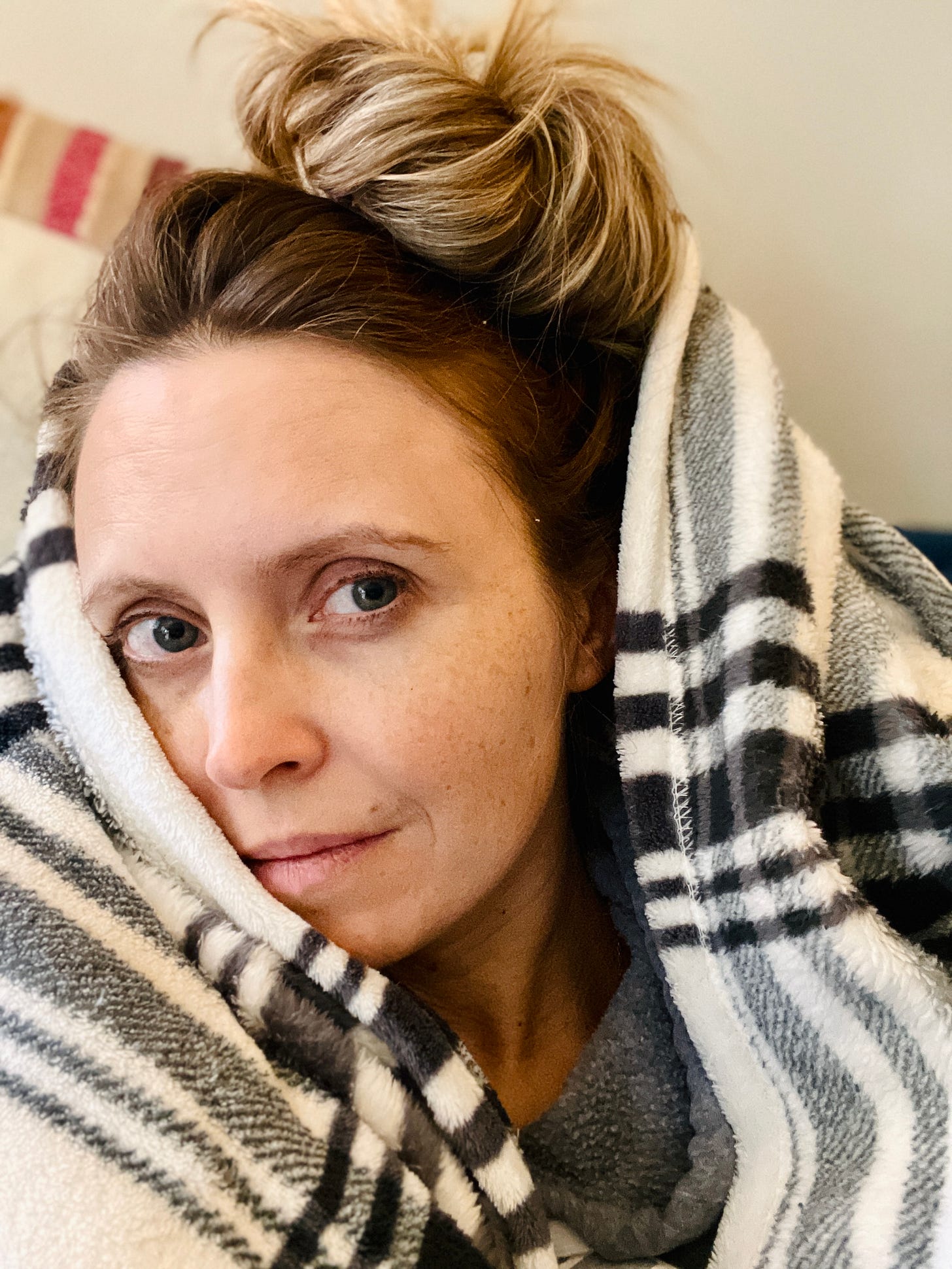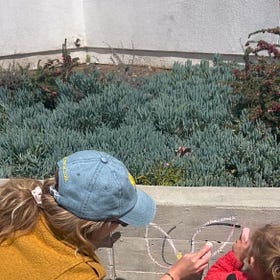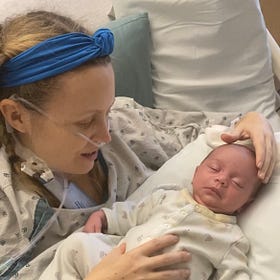How’s it going out there, readers?
I’ve been feeling so many feelings lately - but one feeling, in particular, IS THE WORST. Let’s dig into it while I hide under this blanket and type.
It’s lurking around me a lot lately - the feeling of dread. It hovers in the air and recently I’ve had to be very proactive to escape it. Any time my mind escapes the moment, dread seems to pop out and remind me of its presence.
It somehow yells and whispers at the same time. “You should worry,” it tells me. “Your worry is valid,” it replies when I try to make it go away. It’s hard to argue with the dark fears of what ifs.
So, somehow I simmer in it before doing gargantuan feats of mental gymnastics to pull myself out of the dread-spiral for a moment of solace.
I thought I’d look into dread a bit from a scientific point of view.
It’s no secret people hate dread. In fact, we hate it worse than physical pain. People would rather get an electric shock over thinking about going to the dentist according to a study that says, “the anticipation of pain is a major source of misery.”
Humans would rather endure higher levels of pain immediately rather than waiting longer, suggesting simply anticipating pain itself is worse.
But could there be a purpose to dread? Well, there’s actually some science there too. Extreme dreaders are distinguishable by their neural activity. A study in 2006 suggests “dread derives, in part, from the attention devoted to the expected physical response and not simply from fear or anxiety.” So the dread may be preparing us for action. Maybe it helps us make plans to deter the pain or avoid it altogether.
But all this mental prep doesn’t make dread less painful.
According to an article in Psychology Today- that pain we feel during times of dread is actual pain. “‘Expecting something horrible can be horrible in itself’ ("Dread Prompts Pain in the Brain," in "Nature: International Weekly Journal of Science, 05/04/2006). In this particular investigation, led by Gregory Berns and his co-workers at Emory University School of Medicine, it was found that ‘the paralyzing dread one feels before an injection or tooth extraction fires up some of the same brain regions involved in feeling pain itself.’”
Okay, so how do I combat these literally painful feelings from overwhelming me, science or psychology?
NPR’s Life Kit has some tips: a clinical psychologist suggests writing it out (I suppose this Substack is also a mental health tool, thanks everyone!) and drawing it out through art to process and reframe the emotions.
One suggestion is to think about death (yup, death) - to take a walk and look around and observe things in your environment that have died or are dying as a path to acceptance. In general, anytime we take in our environment, it brings us into a moment of connection.
They also suggest setting a timer and schedule your dread. Take ten minutes or so to feel the feelings and then when the timer goes off, put those feelings away. Compartmentalization gets a bad rep, but, in my opinion, it sure can help us move from paralyzed to functional.
An article in Psychology Today suggests using meaning as a way of combating these emotions, saying, “remember three things: order, meaning, and value. What brings order to your life? What brings meaning to your life? What do you value? Let those three things be your navigator’s components as you make your way through these wild waters. When you do, your free-floating anxiety will likely lessen significantly or even melt away.”
I wish I was better at embracing uncertainty. Push comes to shove these days, I just crave more and more stability. I’ve had enough uncertainty. I want to feel safe and cozy and secure - but I suppose that’s all a facade.
Perhaps, good-ole-fashioned being grateful for safety and security when it’s present is part of the path to well-being too.
Now, I’m safe. At this moment, I have everything I need. At this moment, my body is stable and my loved ones are okay or getting the care they need.
It’s scary to be a tiny human, out of control, spinning around on this tiny planet through space. Maybe our drive for survival and our drive for safety are really one in the same?
But I know I’m not alone in feelings of dread. So I’ll put up the Christmas tree, plan fun things to look forward to, invite friends over for food and silly games, and walk in nature when I can.
I can’t avoid dread completely (being a biological human on this Earth is too complicated), but I can try to prepare, be grateful, and fill my time with playful fun.
After all, it is hard to feel dread singing Frosty the snowman with a two year old.
In case you need some good tunes:
COMMENT OF THE WEEK
“so glad we did this!” Zach
The Butterfly Effect - In a Time of Chaos, Spreading Love Matters
You may have already read about our community family art project that made the news and Today.com. As the dust settled from this strange few days, I’ve stepped back to reflect on the impact a small act made on many people in a time of weariness.
If you’re new here and wondering, “what happened to this lady?” read:
Welcome to my disease. What is atypical Hemolytic Uremic Syndrome (aHUS) or Complement-Mediated Thrombotic Microangiopathy (CM-TMA)?
Hi, If you’re new here, I started writing a book six months ago when I was on dialysis. It’s intended to be both memoir and a practical tool to help folks who might be going through something similar or those caregivers and family supporting someone with a challenging diagnosis. I hope to include excerpts here as I write. NOTE: This is not intended to r…
I started writing this when I was on dialysis. It’s intended to be both memoir and a practical tool to help folks who might be going through something similar or those caregivers and family supporting someone with a challenging diagnosis. NOTE: This is not intended to replace actual medical guidance. Please consult your doctors on your individual challenges and situations. Please talk to your clinicians before adjusting any of your care protocols. Also names have been changed for most of my medical staff.
Thank you to CC Couchois, Roy Lenn, and Dr. Richard Burwick for your founding level donation.







I wish I was better at embracing uncertainty. Push comes to shove these days, I just crave more and more stability. I’ve had enough uncertainty. I want to feel safe and cozy and secure - but I suppose that’s all a facade.” Taylor, I feel exactly the same way!! I won’t bore you with my troubles but being unemployed since August 2024 has been making me crave more and more stability too…. But the results aren’t up to me… I’m just in charge of the actions… which makes me feel more uncertain and powerless. I’m so inspired by your grit. Life can get so hard, as you know. But knowing there are folks like you out there who keep fighting gives me the inspiration to keep going when the days get tough. ❤️❤️❤️❤️❤️❤️❤️❤️❤️❤️❤️❤️❤️
amazingly written